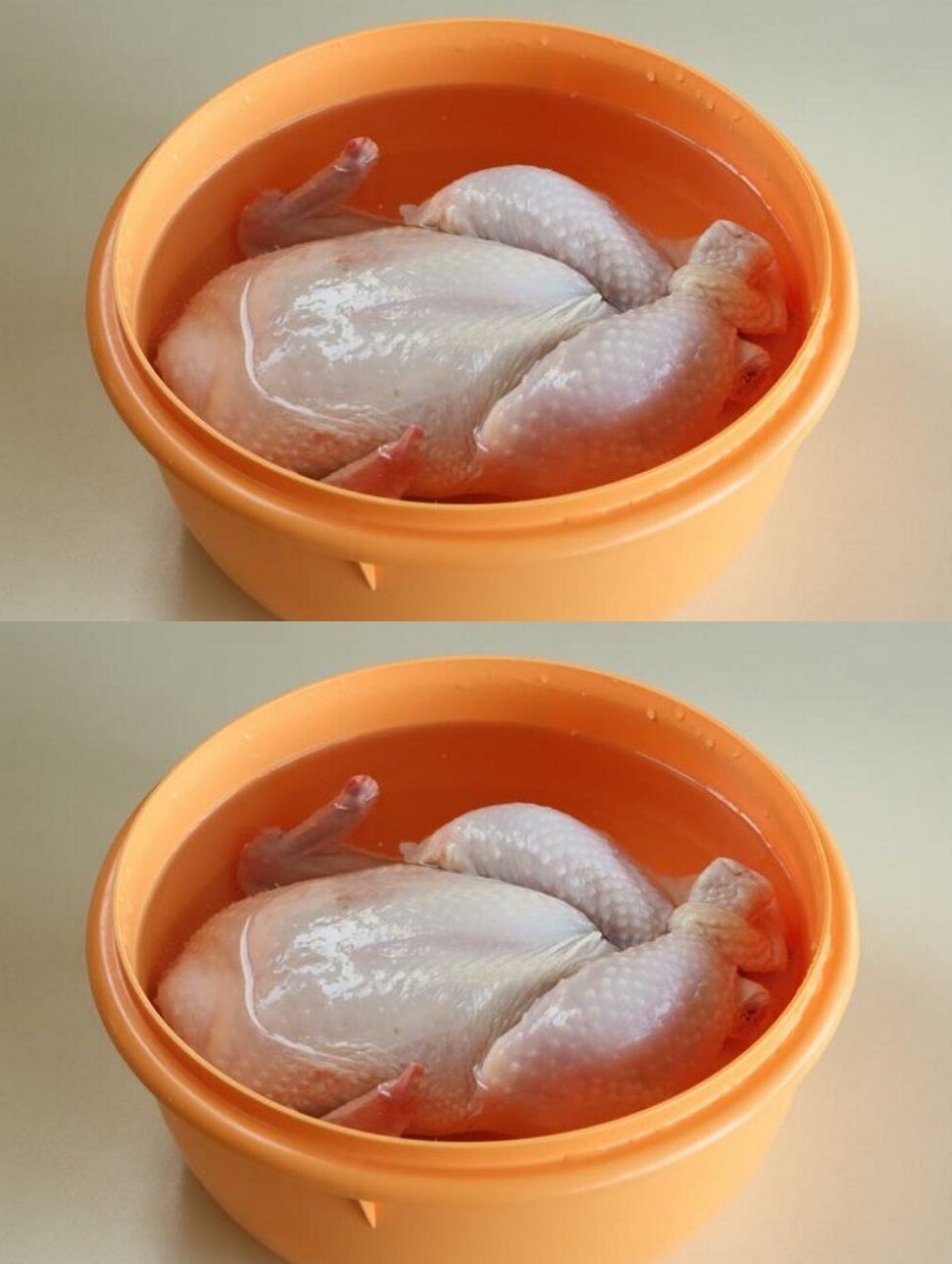ADVERTISEMENT
The Benefits of Soaking Chicken in Salt Water: Why I Wish I Knew Sooner
As a home cook, there are certain kitchen practices that make all the difference when it comes to flavor and texture. One of the simplest yet most effective techniques I’ve discovered is soaking chicken in salt water before cooking. It may sound like a small step, but this method completely elevates the taste, juiciness, and tenderness of the chicken.
I have to admit, I didn’t know about this game-changing trick until recently, and now I wish I’d known sooner! Whether you’re grilling, roasting, or pan-frying chicken, this simple step will improve the results every time. If you’re still skeptical or have never tried it, read on to learn why soaking your chicken in salt water is such an essential cooking technique.
What Does Soaking Chicken in Salt Water Do?
Soaking chicken in salt water, also known as brining, is an age-old method used by chefs and home cooks alike. The process involves submerging the chicken in a mixture of water and salt (and sometimes additional seasonings) before cooking. The saltwater helps the chicken retain moisture, tenderizes the meat, and enhances its natural flavor.
Here’s how it works:
- Moisture Retention: The salt in the brine draws moisture into the chicken, helping it stay juicy and tender throughout cooking.
- Flavor Enhancement: Salt enhances the chicken’s natural flavor and can even penetrate deeper into the meat, seasoning it from the inside out.
- Improved Texture: Brining helps break down proteins in the meat, resulting in a more tender and juicy texture, especially in lean meats like chicken breast.
Why I Wish I Knew About This Sooner
Before I started soaking my chicken in salt water, I was often disappointed by dry, bland, or overcooked chicken. Despite my best efforts, the chicken sometimes turned out tough or lacked flavor. It wasn’t until I discovered the power of brining that I realized what I had been missing all along.
- Juicier Chicken: No more dry chicken! Since brining locks in moisture, every bite is juicy and flavorful, whether I’m grilling, baking, or pan-frying the chicken.
- Enhanced Flavor: The brine infuses the chicken with a subtle saltiness that enhances the meat’s natural flavors without overpowering it. It’s a simple way to add depth and seasoning throughout the entire chicken.
- Tender Texture: I noticed a real difference in texture after brining my chicken. The meat becomes incredibly tender, making it easier to slice and chew, even for lean cuts like chicken breast.
How to Brine Chicken: A Simple Salt Water Solution
Brining chicken is simple, and you don’t need fancy ingredients or equipment to get started. Here’s an easy method you can follow:
Ingredients:
- 1/4 cup kosher salt (for every 4 cups of water)
- Optional: 1-2 tablespoons of sugar (to help with browning)
- Optional: 1-2 cloves of garlic, a few sprigs of fresh herbs (rosemary, thyme), or other seasonings for added flavor
Instructions:
- Prepare the Brine: In a large bowl or container, dissolve the salt (and sugar, if using) in cold water. Stir until completely dissolved.
- Add Optional Flavorings: If you want to infuse the chicken with extra flavor, add garlic, herbs, peppercorns, or even citrus slices to the brine.
- Submerge the Chicken: Place the chicken in the brine, making sure it’s fully submerged. If you have larger pieces (like whole chicken or thighs), you may need a larger container. You can even brine boneless skinless chicken breasts, but they only need to soak for about 30 minutes to an hour.
- Let It Soak: Refrigerate the chicken and let it soak for at least 30 minutes, but no more than 2 hours. For whole chickens or large pieces, brine for several hours or overnight. Keep in mind that the longer it brines, the more flavorful and moist it will be.
- Rinse and Dry: Once the chicken has finished brining, rinse it briefly under cold water to remove excess salt. Pat the chicken dry with paper towels to ensure it cooks properly, especially if you’re planning to grill or sear it.
- Cook as Desired: Now that your chicken is brined, you can cook it however you like! Grill, roast, fry, or bake — the possibilities are endless, and the result will be juicier, more flavorful chicken.
Tips for Brining Chicken
- Use Kosher Salt: Kosher salt is ideal for brining because of its larger crystals, which dissolve more evenly. If you only have table salt, reduce the amount to about half, as table salt is more concentrated.
